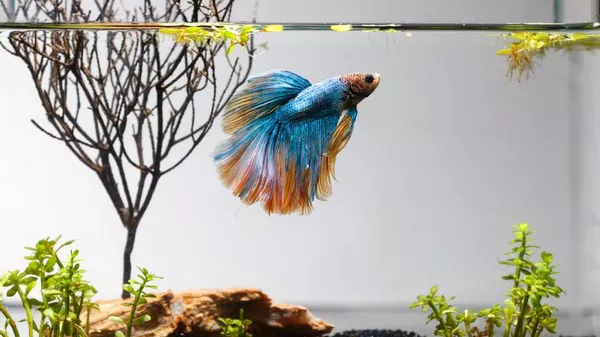Betta fish, known for their vibrant colors and graceful fins, are popular aquatic pets that captivate fish enthusiasts worldwide. Providing the right conditions for your betta fish is essential for their health, well-being, and overall quality of life. Lighting plays a significant role in maintaining a suitable environment for these beautiful fish. In this guide, we’ll explore the importance of light for betta fish, the ideal lighting conditions, and how to strike the right balance to ensure a thriving aquatic companion.
The Role of Light for Betta Fish
Light is essential for more than just aesthetic purposes in an aquarium. It influences the behavior, health, and biological functions of betta fish. Understanding the appropriate lighting conditions will help create an environment that supports their natural behaviors and overall vitality.
Natural Light in Their Habitat
In their native habitats, betta fish live in slow-moving waters, such as rice paddies, swamps, and shallow ponds. These environments receive diffused natural sunlight through vegetation and surface ripples. As a result, bettas are adapted to relatively low light conditions.
Balancing Light and Darkness
In an aquarium setting, it’s crucial to replicate the natural light cycle betta fish would experience in the wild. Providing a balance of light and darkness helps regulate their internal biological clock, known as the circadian rhythm. This rhythm affects their feeding, resting, and overall activity levels.
Ideal Lighting Conditions
1. Indirect and Diffused Light:
Betta fish prefer indirect and diffused light rather than intense, direct lighting. Harsh, bright lights can cause stress, anxiety, and negatively impact their behavior. Consider using aquarium lights with adjustable settings to create a gentle and natural lighting environment.
2. Duration of Light:
On average, betta fish should receive about 8 to 10 hours of light each day. This duration mimics the natural day-night cycle and provides ample time for them to engage in regular activities, such as feeding, exploring, and swimming.
3. Provide Periods of Darkness:
Just as bettas need light, they also require periods of darkness for rest and recuperation. Aim for a consistent schedule with 14 to 16 hours of darkness each day. Use timers to ensure a consistent light cycle.
4. Limit Direct Sunlight:
Direct sunlight can lead to excessive heat, temperature fluctuations, and unwanted algae growth in the aquarium. Keep the tank away from direct sunlight exposure and use artificial lighting that replicates natural conditions.
Benefits of Proper Lighting
Behavioral Well-Being: Providing suitable lighting conditions encourages natural betta behaviors, such as swimming, exploring, and interacting with their environment.
Healthy Plant Growth: If your aquarium includes live plants, proper lighting is crucial for their growth and vitality. Healthy plants contribute to a balanced ecosystem and improved water quality.
Circadian Rhythm Regulation: The proper light cycle helps regulate betta fish’s internal clocks, promoting a healthier lifestyle and reducing stress.
Avoiding Stress and Health Issues: Inadequate or excessive lighting can lead to stress, lethargy, and potential health problems in betta fish. Finding the right balance ensures their overall well-being.
Additional Considerations
Tank Size: The size of the tank can influence the distribution of light. Larger tanks might require more strategically placed lights to ensure uniform lighting.
Aquarium Decor: Use plants, decorations, and surfaces to help diffuse and scatter light, creating a more natural and visually pleasing environment.
Monitor Light Intensity: Some aquarium lights have adjustable intensity settings. Opt for lower settings to prevent overwhelming your betta fish.
Conclusion
Understanding the lighting needs of betta fish is essential for providing them with an optimal environment that supports their natural behaviors and physiological functions. By replicating their native habitat’s gentle, diffused lighting and maintaining a balanced light-dark cycle, you’ll create a comfortable and stress-free environment for your aquatic companions. Investing in appropriate lighting contributes to the overall health, vitality, and enjoyment of your betta fish and their aquatic habitat.
Recommended reading:

























